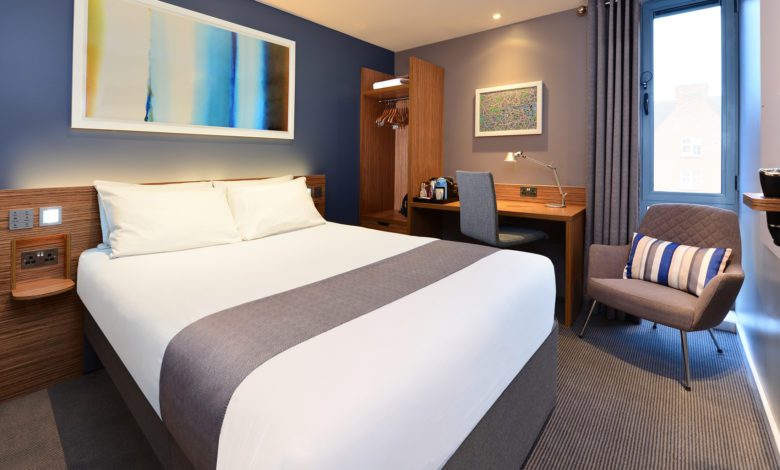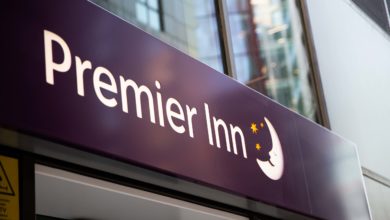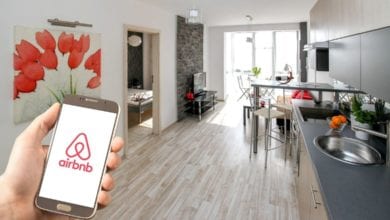What does the future look like for business hotels?
Corporate travel is slow to return, but increased flexibility could lead to new opportunity for expansion

The Staycation boom may have eased the pressure on hotels over the summer, but the lack of corporate travel could lead to a difficult winter. With the rise in remote-working and environmental concerns potentially leading to a permanent shift in the sector, how are hotels aiming to adapt with the times, and is there scope for new opportunity? Hotel Owner looks at how some business hotels are adapting to the new normal.
Shifting Patterns
Despite the UK hotel industry reporting a strong summer, the recovery of hotels which primarily catered to corporate travellers pre-covid was subsidised by the increase in demand for staycations.
Over the summer UK hotel platform AGO hotels, which operates the Ibis hotel chain and usually caters to business travellers, reported a significant shift in their booking patterns.
While they saw an upturn in occupancy (29.5% from June to July), the uplift was primarily family and leisure bookings at its hotels in areas close to tourist hotspots, despite these sites previously being used mainly by business travellers.
Co-founder of AGO Hotels Lionel Benjamin confirms the company was aware of this shift in booking patterns, and explains “Business travel is beginning to pick up but at the same time we are seeing enhanced interest from staycationers in hotels which were previously seen as ‘business only’”.
He adds: “Location is key – and we have seen real staycation demand close to vibrant city centres or popular outdoor destinations, attracting the attention of domestic travellers looking for a change of scenery”.
While the boost in recreational bookings has provided relief, “uncertainties remain around international travel, it is likely the trend we are currently seeing will continue” Benjamin says.
“Hopefully, this shift will encourage people to see holidays in the UK in a different light and more people will be encouraged to consider the benefits of holidays closer to home.”
However, for business hotels, the decrease in demand as foreign travel opens up and we leave summer could expose a permanent decline in corporate travel.
Robin Rossman, managing director of STR, predicted in The Financial Times “an Autumn hangover from a pretty stellar summer for hotels that had any kind of leisure appeal”.
Commenting on the prospects of a return to corporate travel, he said: “Generally nobody knows, other than there’s nothing on the books at the moment”.
New opportunities
With the future filled with uncertainty, hotels and companies are beginning to explore alternative ways to reimagine how corporate travel could look in the future, as the increased flexibility could pave the way for a new focus on work and leisure blended stays.
This has the potential to launch an entirely new market, centred around the ideal of geographic freedom and increased value placed on a work-life balance.
A spokesperson for Airbnb suggested they are exploring this area, saying “Zoom may not be helpful for business travel, but it’s good for family travel, and longer weekends that blend work and leisure, made possible by part-time remote work, also will be part of the future”.
The Ascott Limited has shared the same overview, seeing an increased rise in interest for serviced apartments which offer a combination of work spaces and relaxation. Phillip Mettey, vice president of sales and marketing at Ascott Europe, notes that the interests of its clientele have shifted.
“Since COVID-19, corporate clients are even more interested in serviced apartments as they offer a safe and secure self contained option for workspace and accommodation” he says.
“Corporates are coming back and they appreciate the flexibility of our apart’hotel concept with each spacious apartment offering a comfortable bed for a good night’s sleep, a fully equipped kitchen to allow for self-catering, plenty of space to relax or work and free unlimited high-speed WiFi.”
The direction in approach towards a blending of work and leisure is also seen in the increase of team building offers from MICE hotels. The Belfry recently boosted their outdoor MICE offerings, as companies look to reunite colleagues face-to-face. With remote working taking centre stage, a combination of social and business long stays could be set to emerge as one way to fill the gap.
“During the lockdown period, we made a number of upgrades and improvements to our facilities as we expected to see a demand for outdoor hospitality, team building and team recognition events, with corporates keen to reunite face-to-face once restrictions were relaxed” observes Chris Eigelaar, resort general manager at The Belfry.
Meanwhile, Travelodge has also reported seeing “more workers meeting centrally and combining a business trip with networking with colleagues or clients”.
The return to traditional corporate travel may be a slow road, but the increased flexibility and opportunities which arise from a world working remotely could lead to expanding horizons for its future. Business hotels, and corporate travel as a whole, may not return to the way it was before the pandemic started, as priorities of both hotels and consumers shift.
Working from home has led to a regression in socialisation in the workplace. When business travellers embark on corporate trips, it is this gap they are looking to fill in the future, a gap which hotels can take advantage of when considering their corporate offerings.
Photo credit – ‘Travelodge SuperRoom”









